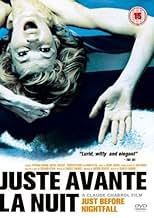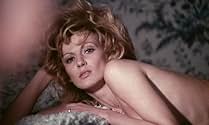"Just Before Nightfall" is a slow, grim, gritty, no-nonsense film. It seems as if director Claude Chabrol is saying to the viewer, "Look, don't expect to be charmed or pleased by this film -- that would be pointless for everyone. I'm interested in one thing, and one thing only: the theme of the story. Anything else would be a pointless distraction." If the viewer is willing to go along with Chabrol for the ride, Just Before Nightfall is a rich and moving film.
"Just Before Nightfall" is not a whodunnit, or even a why-dunnit. "It" -- a murder -- kind of just happened, possibly accidentally, and the question facing the characters is: what shall we do about it, now? The lead character knows he is guilty, and his desire to conceal his guilt slowly changes to a desire to confess his guilt. In this, he is like the character of Raskolnikov in Dostoevski's "Crime and Punishment". More astonishing is how his friends and family respond to his confession: they are eager to forgive and forget, to deny and bury the past. And this, in turn, creates an even worse situation for the anti-hero.
1971 was dark moment, politically and culturally. Many films of that year feel like they are suffering from a hangover from the 60s: the time of exuberant exploration and new possibilities has passed, and in its place is a cosmic-scale exhaustion and hopelessness. You see this kind of industrial-strength bleakness in US films like "Five Easy Pieces", "Carnal Knowledge", "Two-Lane Blacktop". If you enjoy 70s bleakness, or, you are interested in guilt and forgiveness, or, you want to watch a director go after his message with an intensely single-minded focus -- then "Just Before Nightfall" is well worth your time.































